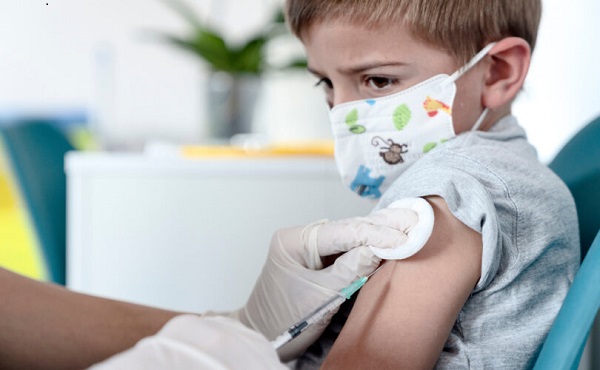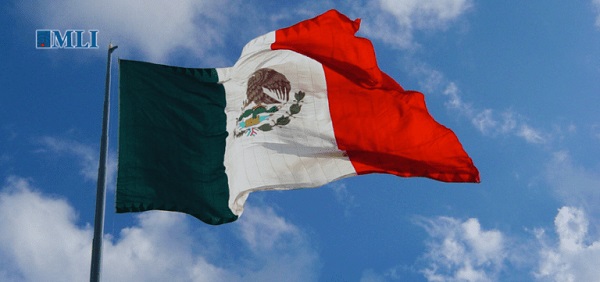Alberta
Olivia and Noah most popular baby names in 2020

Olivia continued a record streak as the most popular baby girl’s name in Alberta in 2020 while Noah remained in the top spot for baby boys.
Alberta families welcomed 49,030 babies in 2020 – 25,160 boys and 23,870 girls. Olivia was the most popular girl’s name for the eighth year in a row, giving it the longest popularity streak for any girl’s name in Alberta since 1980. Noah placed first on the boys’ names list for the second consecutive year.
Other popular names for girls were Emma, Charlotte, Ava and Sophia. Oliver, Liam, Benjamin and William rounded out the top five names for boys.
Alberta remains a province of many cultural and ethnic backgrounds, and many of our youngest members have names reflecting that diversity. Alberta is home to baby girls named Amara, Amaya, Zahra, Zoya, Baani, Danika, Raya, Thalia, Yuna and Chimamanda. Some of Alberta’s youngest boys are named Mateo, Ahmed, Bodhi, Yusuf, Zorawar, Arjun, Gurbaaz, Miguel, Abdul and Idris.
“Last year was difficult for everyone, but every new baby that an Alberta family welcomed brings joy and also hope for the future. Whether parents welcomed their firstborn or a sibling to other children, they can count on the same thing: Alberta is a great place to raise a family and we have a strong future ahead of us.”
In a year unlike any other, positivity seemed to be a popular theme for some new parents, with names like Hope, Peace, Faith, Charity, Joy, Happy and Brave appearing on the list of registered names.
Some parents also seemed to be inspired by athletes (Kobe, Muhammad-Ali, Beckham), mythology (Artemis, Persephone, Aries, Zeus), music (Dre, Zeppelin, Bowie), video games (Zelda, Link, Eevee), literature (Guinevere, Atticus) and places (Cairo, Nile, Phoenix).
Quick facts
- Notable changes to the 2020 lists:
- Isla appeared in the top 10 list for girls for the first time. The name was 12th most popular among girls in 2019.
- Theodore and Levi appeared in the top 10 list for boys for the first time. The names were 19th and 27th most popular among baby boys in 2019, respectively.
- Lily increased in popularity among girls’ names, from 24th most popular in 2019 to ninth in 2020.
- Ethan dropped to 12th place among the most popular boys’ names, after appearing in the top 10 list every year since 2000.
- Historically, girls’ names that held the No. 1 spot for the longest consecutive time period include:
- Jessica: six years (1990-1995)
- Emily: five years (1998-2002)
- Olivia: eight years (2013-2020)
- Historically, boys’ names that held the No. 1 spot for the longest consecutive time period include:
- Matthew: five years (1995-1999)
- Ethan: nine years (2001-2009)
- Liam: seven years (2010-2016)
- The highest birth count recorded in recent history for Alberta was 56,744, recorded in 2015.
- Parents have up to one year to register their child’s birth. As a result, the list of 2020 baby names and birth statistics may change slightly.
Girls’ names and frequency (top 10)
(In brackets is the number of children with each name)
| Place | Girl names (2020) | Girl names (2019) | Girl names (2018) | Girl names (2017) | Girl names (2016) |
| 1 | Olivia (236) | Olivia (229) | Olivia (235) | Olivia (236) | Olivia (292) |
| 2 | Emma (184) | Charlotte (188) | Emma (230) | Emma (215) | Emma (249) |
| 3 | Charlotte (161) | Sophia (181) | Charlotte (175) | Charlotte (187) | Sophia (215) |
| 4 | Ava (159) | Emma (178) | Emily (164) | Ava (184)
Sophia (184) |
Ava (207) |
| 5 | Sophia (151) | Ava (161) | Ava (161) | Emily (159) | Emily (187) |
| 6 | Amelia (145) | Amelia (159) | Abigail (153) | Abigail (154) | Charlotte (180) |
| 7 | Isla (133) | Emily (150) | Harper (150) | Amelia (149) | Amelia (172) |
| 8 | Emily (127) | Abigail (141) | Sophia (146) | Isabella (141) | Abigail (171) |
| 9 | Lily (123) | Hannah (137) | Amelia (145) | Aria (129)
Chloe (129) |
Chloe (166) |
| 10 | Abigail (114) | Elizabeth (124) | Elizabeth (130) | Lily (127) | Aria (137) |
Boys’ names and frequency (top 10)
(In brackets is the number of children with each name)
| Place | Boy names (2020) | Boy names (2019) | Boy names (2018) | Boy names (2017) | Boy names (2016) |
| 1 | Noah (239) | Noah (275) | Liam (225) | Noah (250) | Liam (277) |
| 2 | Oliver (229) | Liam (234) | Oliver (212) | Liam (244) | Benjamin (252) |
| 3 | Liam (206) | Oliver (225) | Noah (199) | Benjamin (229) | Lucas (247) |
| 4 | Benjamin (182) | Ethan (213) | Ethan (188) | Logan (226) | Oliver (230) |
| 5 | William (178) | Jack (198) | Logan (182)
Lucas (182) |
Lucas (216) | Noah (228) |
| 6 | Jack (169) | William (185) | Jacob (181) | William (213) | William (213) |
| 7 | Lucas (163) | Lucas (174) | William (178) | Ethan (192) | Ethan (205) |
| 8 | Theodore (159) | Owen (167) | Benjamin (176) | Oliver (190) | Jack (197) |
| 9 | Levi (153) | Benjamin (163) | Jack (167) | Jack (189) | Lincoln (192) |
| 10 | Owen (152) | Jacob (162) | Alexander (158)
James (158) |
Jacob (178) | Owen (189) |
Alberta
On gender, Alberta is following the science

Despite falling into disrepute in recent years, “follow the science” remains our best shot at getting at the truth of the physical sciences.
But science, if we are to place our trust in it, must be properly defined and understood; it is at its essence an ever-changing process, a relentless pursuit of truth that is never “settled,” and one that is unafraid to discard old hypotheses in the face of new evidence.
And it is in this light—in the unforgiving glare of honest science—that Alberta Premier Danielle Smith’s three new legislative initiatives around gender policy are properly understood, notwithstanding the opprobrium they’ve attracted from critics.
Bill 26, the Health Statutes Amendment Act, proposes to prohibit the prescription of puberty blockers and cross-gender hormones for the treatment of gender dysphoria to youth aged 15 and under. It would allow minors aged 16 and 17 to begin puberty blockers and hormone therapies for gender “reassignment” and “affirmation” purposes only with parental, physician, and psychologist approval. The bill also prohibits health professionals from performing sex reassignment surgeries on minors.
Bill 27, the Education Amendment Act, seeks to enshrine parents’ rights to be notified if their kids change their names/pronouns at school, and it gives parents the right to “opt in” to what sort of gender and sex education their kids are exposed to in school.
And Bill 29, the Fairness and Safety in Sports Act, is designed to protect females in sports by ensuring that women and girls can compete in biological female-only divisions, while supporting the formation of co-ed opportunities to support transgender athletes.
Each of these initiatives is entirely reasonable, given what we know of the science underpinning “gender care,” and of the undeniable advantages that a male physique confers upon biological males competing in sports.
The notion that the trifecta of puberty blockers, cross-gender hormones, and revisionist surgery is a pathway to good health was a hypothesis initially devised by Dutch researchers, who were looking to ease the discomfort of transgender adults struggling with incongruence between their physical appearance and their gender identities. As a hypothesis, it was perhaps reasonable.
But as the UK’s Cass Review exposed in withering detail last spring, its premises were wholly unsupported by evidence, and its implementation has caused grievous harm for youth. As Finnish psychiatrist Riittakerttu Kaltiala, one of the architects of that country’s gender program, put it last year, “Gender affirming care is dangerous. I know, because I helped pioneer it.”
It’s no accident, then, that numerous European jurisdictions have pulled back from the “gender affirming care” pathway for youth, such as Sweden, Finland, Belgium, the Netherlands, and the United Kingdom.
It makes perfect sense that Canadians should be cautious as well, and that parents should be apprised if their children are being exposed to these theories at school and informed if their kids are caught up in their premises.
Yet the Canadian medical establishment has remained curiously intransigent on this issue, continuing to insist that the drug-and-surgery-based gender-affirming care model is rooted in evidence.
Premier Smith was asked by a reporter last month whether decisions on these matters aren’t best left to discussions between doctors and their patients; to which she replied:
“I would say doctors aren’t always right.”
Which is rather an understatement, as anyone familiar with the opioid drug crisis can attest, or as anyone acquainted with the darker corners of medical history knows: the frontal lobotomy saga, the thalidomide catastrophe, and the “recovered memories of sexual abuse” scandal are just a few examples of where doctors didn’t “get it right.”
As physicians, we advocate strongly for self-regulation and for the principle that medical decisions are private matters between physicians and patients. But self-regulation isn’t infallible, and when it fails it can be very much in the interests of the public—and especially of patients—for others to intervene, whether they be journalists, lawyers, or political leaders.
The trans discussion shouldn’t be a partisan issue, although it certainly has become one in Canada. It’s worth noting that Britain’s freshly elected Labour Party chose to carry on with the cautious approach adopted by the preceding administration in light of the Cass Review.
Premier Smith’s new polices are eminently sensible and in line with the stance taken by our European colleagues. None of her initiatives are “anti-trans.” Instead, they are pro-child, pro-women, and pro-athlete, and it’s difficult to see how anyone can quibble with that.
Dr. J. Edward Les, MD, is a pediatrician in Calgary, senior fellow at the Aristotle Foundation for Public Policy, and co-author of Teenagers, Children, and Gender Transition Policy: A Comparison of Transgender Medical Policy for Minors in Canada, the United States, and Europe.
Alberta
Alberta mother accuses health agency of trying to vaccinate son against her wishes

From LifeSiteNews
Alberta Health Services has been accused of attempting to vaccinate a child in school against his parent’s wishes.
On November 6, Alberta Health Services staffers visited Edmonton Hardisty School where they reportedly attempted to vaccinate a grade 6 student despite his parents signing a form stating that they did not wish for him to receive the vaccines.
“It is clear they do not prioritize parental rights, and in not doing so, they traumatize students,” the boy’s mother Kerri Findling told the Counter Signal.
During the school visit, AHS planned to vaccinate sixth graders with the HPV and hepatitis B vaccines. Notably, both HPV and hepatitis B are vaccines given to prevent diseases normally transmitted sexually.
Among the chief concerns about the HPV vaccine has been the high number of adverse reactions reported after taking it, including a case where a 16 year-old Australian girl was made infertile due to the vaccine.
Additionally, in 2008, the U.S. Food and Drug Administration received reports of 28 deaths associated with the HPV vaccine. Among the 6,723 adverse reactions reported that year, 142 were deemed life-threatening and 1,061 were considered serious.
Children whose parents had written “refused” on their forms were supposed to return to the classroom when the rest of the class was called into the vaccination area.
However, in this case, Findling alleged that AHS staffers told her son to proceed to the vaccination area, despite seeing that she had written “refused” on his form.
When the boy asked if he could return to the classroom, as he was certain his parents did not intend for him to receive the shots, the staff reportedly said “no.” However, he chose to return to the classroom anyway.
Shortly after, he was called into the office and taken back to the vaccination area. Findling said that her son then left the school building and braved the sub-zero temperatures to call his parents.
Following his parents’ arrival at the school, AHS claimed the incident was a misunderstanding due to a “new hire,” attesting that the mistake would have been caught before their son was vaccinated.
“If a student leaves the vaccination center without receiving the vaccine, it should be up to the parents to get the vaccine at a different time, if they so desire, not the school to enforce vaccination on behalf of AHS,” Findling declared.
Findling’s story comes just a few months after Alberta Premier Danielle Smith promised a new Bill of Rights affirming “God-given” parental authority over children.
A draft version of a forthcoming Alberta Bill of Rights provided to LifeSiteNews includes a provision beefing up parental rights, declaring the “freedom of parents to make informed decisions concerning the health, education, welfare and upbringing of their children.”
-

 Brownstone Institute3 hours ago
Brownstone Institute3 hours agoThe Most Devastating Report So Far
-

 Economy15 hours ago
Economy15 hours agoCOP 29 leaders demand over a $1 trillion a year in climate reparations from ‘wealthy’ nations. They don’t deserve a nickel.
-

 Alberta13 hours ago
Alberta13 hours agoOn gender, Alberta is following the science
-

 Energy14 hours ago
Energy14 hours agoOttawa’s proposed emission cap lacks any solid scientific or economic rationale
-

 Bruce Dowbiggin2 hours ago
Bruce Dowbiggin2 hours agoCHL Vs NCAA: Finally Some Sanity For Hockey Families
-

 Brownstone Institute1 day ago
Brownstone Institute1 day agoFirst Amendment Blues
-

 Crime2 days ago
Crime2 days agoMexican cartels are a direct threat to Canada’s public safety, and the future of North American trade
-

 Alberta1 day ago
Alberta1 day agoAlberta mother accuses health agency of trying to vaccinate son against her wishes




